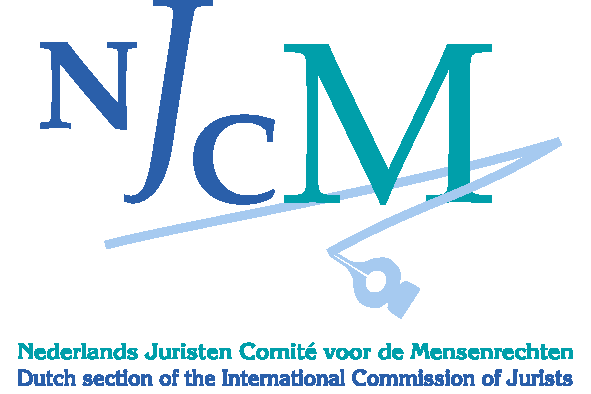
Jul 16, 2020 | Advocacy, Non-legal submissions
The ICJ and its Dutch national section today highlighted findings and recommendations of the UN Special Rapporteur on racism, racial discrimination and xenophobia, on her visit to the Netherlands.
The statement was prepared for the ICJ by its Dutch national section, Nederlands Juristen Comité voor de Mensenrechten (NJCM), for today’s interactive dialogue with the Special Rapporteur at the UN Human Rights Council, but could not be read out during the meeting due to limited time allowed for civil society statements:
“Madam Special Rapporteur,
The ICJ highly appreciates your dedicated work in the fight against racism, and welcomes your report following your country visit to the Netherlands last October. During this visit you met our colleagues from the Dutch section of the ICJ, who have prepared and join in this statement.
The ICJ shares your concern that the highest levels of political office in the Netherlands do not reflect the racial, ethnic and cultural diversity of its society. The extent in which under-representation still plays a role in the Netherlands is worrisome. This is reflected in the lack of inclusive and non-discriminatory policies.
The ICJ agrees that a full account of the history of slavery and colonialism is fundamental in Dutch education. The essence of this education must highlight how the exploitation of colonized peoples and territories normalized racial and cultural hierarchies. Racial relations in the Netherlands will not be understood in context without a fair and accurate account of history.
The ICJ commends you for addressing the systemic and institutional nature of racism within the Netherlands on an intersectional level and we call upon the government to fulfill its human rights obligations in this regard.
Madam Rapporteur could you share good practices in which governments collect data on ethnic minorities to help protect human rights while protecting against misuse of the data?
Thank you.”
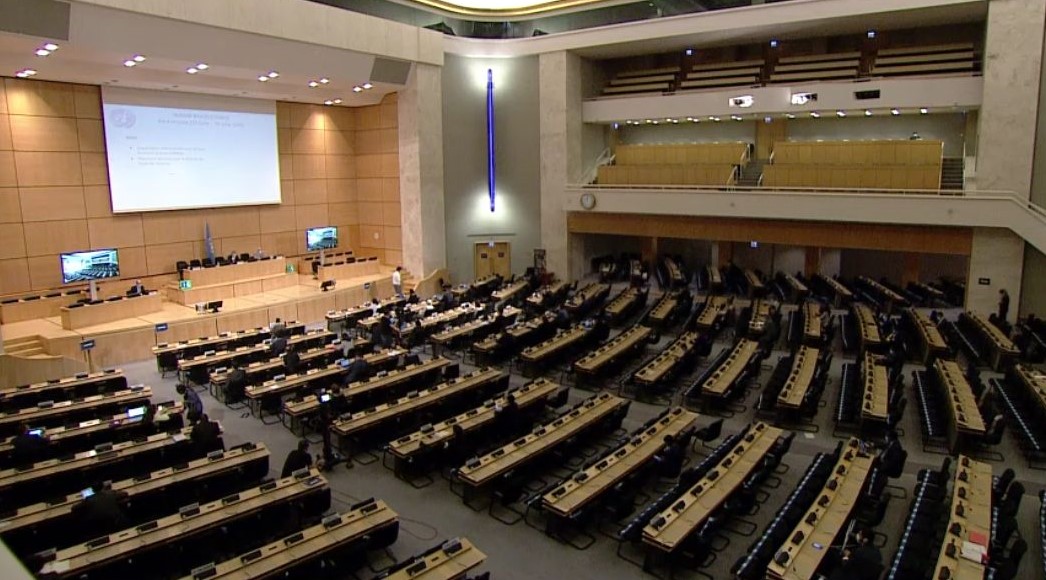
Jul 15, 2020 | Advocacy, Non-legal submissions
The ICJ today highlighted the lack of judicial independence and other obstacles to access to justice for human rights violations in Venezuela, at the UN Human Rights Council.
The statement, delivered in an interactive dialogue on the relevant report of the High Commissioner for Human Rights, read as follows:
“Madame President,
The International Commission of Jurists (ICJ) welcomes the report of the High Commissioner for Human Rights’ on the situation in Venezuela pursuant to resolution 42/25. The ICJ regrets however that the report was not published sufficiently in advance of the Interactive Dialogue to allow for detailed analysis and response.
The report points to a wide range of violations of civil, cultural, economic, political, and social rights in the country.
The ICJ has documented over many years the lack of judicial independence and the absence of domestic accountability for human rights violations in Venezuela. In the Arco Minero of the Orinoco, we have seen numerous alleged cases of enforced disappearances, human trafficking, threats to human rights defenders, and serious abuses of the rights of indigenous peoples, especially indigenous women and children.
The ICJ would like to ask the High Commissioner to elaborate on the long-entrenched obstacles to accountability for human rights violations in the Venezuelan justice system, and on the abuses against indigenous peoples in the Arco Minero.
The ICJ also looks forward to the discussion of and action on the Independent International Fact-Finding Mission’s report at the 45th session of the Council in September, and urges the Council to stand ready to extend the mandate, and to enlarge the scope, of the Fact-Finding Mission at that time.
Thank you.”
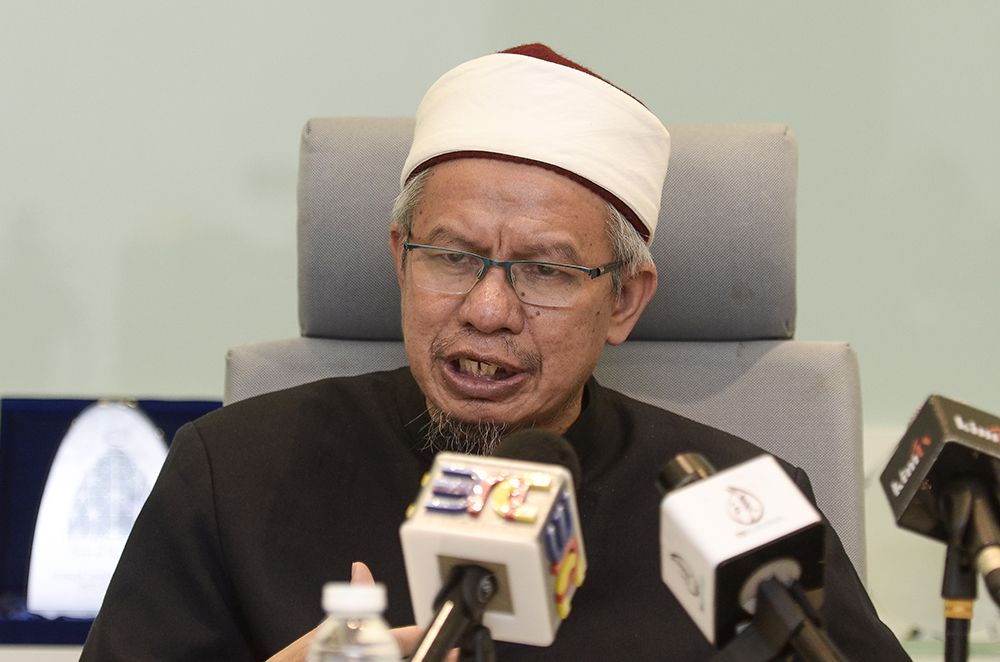
Jul 15, 2020 | Advocacy, Multimedia items, News, Video clips
The ICJ today condemned the order issued by Zulkifli Mohamad Al-Bakri, Malaysia’s Minister in charge of religious affairs, to the Federal Territories Islamic Religious Department (Jawi) to take action against the transgender community.
The ICJ called on the Minister to rescind the order immediately and take steps to ensure non-discrimination and equal protection of all persons in Malaysia, including LGBTI persons.
On 10 July 2020, Zulkifli Mohamad Al-Bakri announced in a social media post that he had given the Jawi authorities “full licence to carry out its enforcement actions” against transgender persons in Malaysia. He elaborated that his order would beyond arresting transgender persons but would also extend to providing them “religious education” so that they would “return to the right path”.
“This unacceptable transphobic and homophobic attack from a government official highlights the societal prejudices and the lack of legal protections against discrimination faced by transgender persons in Malaysia,” said Ambiga Sreenavasan, a prominent Malaysian lawyer and Commissioner of the ICJ.
“Instead of ensuring that the human rights and dignity of all persons are respected and protected, the Minister, through his statement, is going in the complete opposite direction by advocating state action against persons belonging to sexual orientation and gender identity minorities,” added Ambiga Sreenavasan. “The Minister is legitimizing harassment, discrimination and violence against transgender people, and increasing violations of their human rights.”
Across the country in 13 states and the federal territories, a “male” who “poses” as a woman or wears the clothing of a “woman” may be subjected to criminal liability under state-level religious enactments. Consensual same-sex sexual relations are criminalized as “unnatural offences” in both secular civil law and religious state-level laws. These “offences” carry heavy penalties in the form of fines, imprisonment and corporal punishment in the form of caning, which constitutes impermissible cruel, inhuman or degrading punishment under international law and standards.
The ICJ stressed that these laws served to institutionalize systemic discrimination on the basis of sexual orientation and gender identity and expression, while also creating barriers for LGBT people when seeking justice. They provide state authorities with expansive power to police gender identities, expressions and sexual orientations of people.
The ICJ notes that experiences of severe stigma, marginalization, and violence committed by families, communities, and State actors lead to immense health risks and mental health disparities of transgender individuals.
The ICJ is also deeply concerned about the Minister’s plan to require members of the transgender community to undergo religious conversion therapy. Numerous studies have shown how religious conversion therapy and related practices are causing real harm not only to transgender people, but also to lesbian, gay, and bisexual individuals.
The ICJ calls on the Government of Malaysia to abide by its obligations under international law and follow through with its commitment to human rights, by ensuring that transgender people and all persons are legally protected against discrimination, and that they are able to live free from prejudice, harassment, and violations of their human rights.
Contact
Emerlynne Gil, ICJ Senior International Legal Adviser, e: emerlynne.gil(a)icj.org
Background
In 2019, the Human Rights Commission of Malaysia (SUHAKAM) released a report on Transgender Persons in Kuala Lumpur and Selangor. Many of the transgender people interviewed for this report said that they constantly face arbitrary arrests, discrimination in obtaining employment, and even discrimination in obtaining housing because of their gender identity. A large majority of those interviewed experienced violence because of their gender identity.

Jul 14, 2020 | Advocacy, Non-legal submissions
At the UN Human Rights Council, the ICJ today highlighted the need for a range of measures to effectively address the continuing impunity for gross violations of human rights in Myanmar.
The oral statement, which was delivered in an interactive dialogue with the UN Special Rapporteur on the situation of human rights in Myanmar, read as follows:
“The ICJ welcomes and shares the concerns of the final report of the previous Special Rapporteur Ms Yanghee Lee, particularly with the lack of accountability for gross human rights violations against Myanmar’s ethnic minorities.
The ICJ recalls Myanmar’s international human rights obligations, including under the Convention on the Prevention and Punishment of the Crime of Genocide and the provisional measures ordered by the International Court of Justice in The Gambia v. Myanmar case.
The ICJ underscores that directives enjoining government officials from engaging in further acts of genocide are not sufficient without comprehensive legal and constitutional reform to end impunity. This includes the amendment of laws such as the 1959 Defence Services Act and the 2014 Myanmar National Human Rights Commission Law.
National institutions continue to fail to conduct credible investigations into allegations of widespread human rights violations by the military against ethnic minorities. The final report of the Independent Commission of Enquiry, which was not made public, was transmitted to the Attorney General and the Commander-in-Chief of Myanmar’s Armed Forces, implying that military courts will take jurisdiction over at least some of the cases, inconsistent with Principle 29 of the UN Principles for the protection and promotion of human rights through action to combat impunity (UN doc E/CN.4/2005/102/Add.1/).
Mr Andrews, as the new mandate-holder, the ICJ would like to invite you to elaborate on your priorities and strategies for addressing the continuing impunity for such violations in Myanmar.”
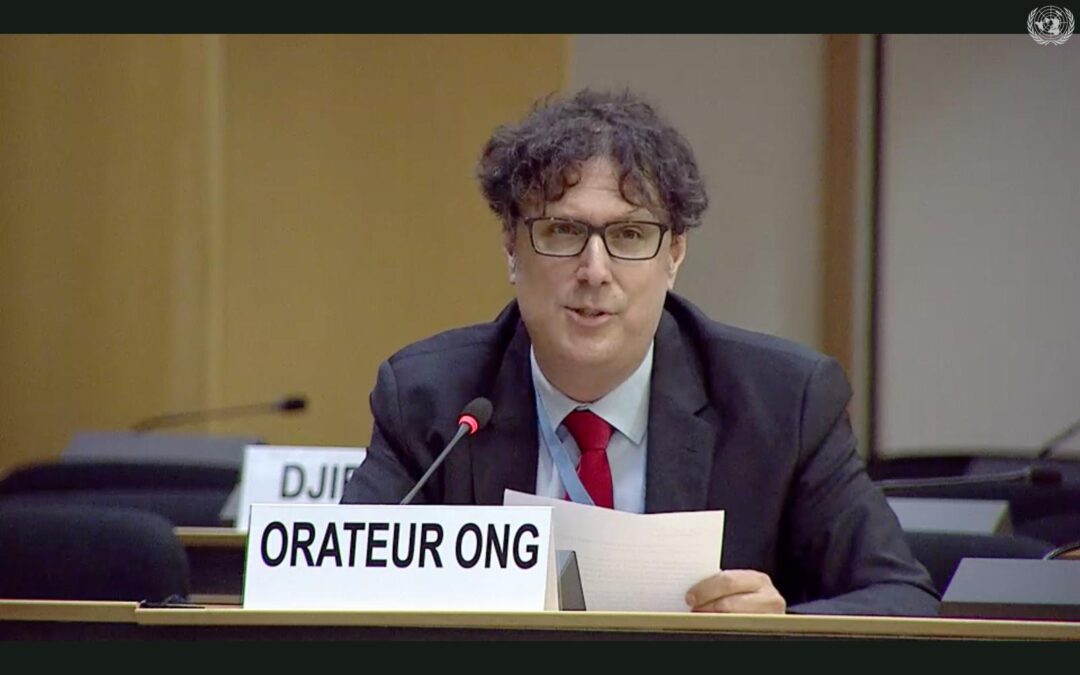
Jul 13, 2020 | Advocacy, Non-legal submissions
Speaking at the UN Human Rights Council the ICJ today emphasized the need for a human-rights-based approach to addressing corruption in justice systems, and urged more attention be given to the abuse of non-independent prosecution services by Executive governments.
The statement, delivered in an interactive dialogue with the Special Rapporteur on the independence of judges and lawyers, read as follows:
“Mr Special Rapporteur,
The International Commission of Jurists (ICJ) concurs with the affirmation in your report that justice systems must effectively counter corruption; that corruption in justice systems negatively impacts human rights; and that addressing such impacts is within the mandate of the Human Rights Council.[1]
At the same time, the UN Office on Drugs and Crime (UNODC) already actively provides resources and specialized technical expertise to States and prosecutors in implementing the Convention against Corruption. Keeping the Human Rights Council’s focus on the specific value added by a human-rights-based approach to such overlapping issues makes the best use of the Council and OHCHR’s limited resources and special competence and expertise.
For example, this report could have presented a detailed analysis of, and recommendations on, the right to remedy and reparation of victims of human rights violations caused by corruption of prosecutors, judges and lawyers. However, while the report briefly mentions victims (para 30), human rights defenders (para 31), and human rights training (para 58), and that human rights issues can impede international cooperation (para 49), but otherwise it mostly addresses technical advice for effective counter-corruption measures. The ICJ invites you to elaborate on the specific new elements a human-rights-based approach adds to the expert advice already provided by UNODC in this regard.
We also urge you to devote a future report to the manipulation of non-independent prosecution services by Executive governments to repress dissenting voices and human rights defenders, neutralize political opposition, shrink civil society space, and entrench impunity for human rights violations, which as our submission documented is no less urgent a global human rights issue than corruption, and is not a special focus of UN bodies other than the Council and OHCHR.
Thank you.”
[1] Indeed, twenty years ago the ICJ adopted a Policy Framework for Preventing and Eliminating Corruption and Ensuring the Impartiality of the Judicial System and its work against corruption in cooperation with judiciaries and prosecution services continues at the global and national levels.
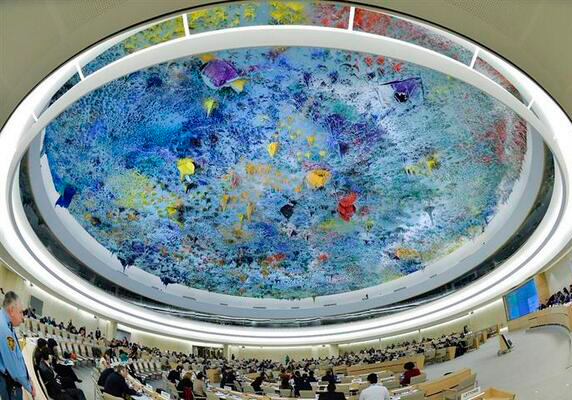
Jul 10, 2020 | Advocacy, Non-legal submissions
The ICJ and the World Organization against Torture (OMCT) today highlighted a range of human rights violations, including of freedom of association and assembly, in India’s repression of peaceful protests and the impact of COVID-19 measures in the country.
The joint statement “OMCT and ICJ welcome the Report of the Special Rapporteur on the rights to freedom of peaceful assembly and association and echo his concerns over the intensity and seriousness of the threats to the enjoyment of these rights, including the impact of current Covid-19 pandemic on the already fragile civic space.
We are particularly alarmed over the increasingly violent repression of dissent in India and the arbitrary detention and harassment of activists and human rights defenders by the state in relation to their participation in peaceful protests against the Citizenship Amendment Act 2019 (CAA), the National Population Register and the National Register of Citizens.
The repression of anti-CAA protests has been brutal, with the police reportedly using excessive force against demonstrators, including firing indiscriminately into crowds, using teargas and water cannons, beating bystanders and detaining and torturing protesters, including children. At least 31 persons were killed during these protests and scores were injured. No impartial and transparent investigations into the violence have been conducted to this day.
Reportedly fabricated charges of sedition, murder, and terrorism under repressive anti-terror and national security laws – such as the Unlawful Activities (Prevention) Act and the National Security Act – have been filed against activists and human rights defenders participating in the protests. Those arrested and detained include Gulfisha Fatima, Natasha Narwal, Devangana Kalita, Khalid Saifi, Meeran Haider, Shifa ur Rehman, Isharat Jahan, Dr. Kafeel Khan, Sharjeel Imam, Akhil Gogoi and Asif Iqbal. They are still in prison despite repeated calls for their release by national and international human rights groups and the United Nations.
Severe restrictions on freedom of peaceful assembly and association have been imposed in the framework of the Covid-19 emergency. These include blanket shutdown of internet services and the imposition in several areas of Section 144 of the Criminal Procedure Code, a colonial law banning public protests and gathering of more than five people. While appreciating India’s efforts to prevent the spread of Covid-19, we remind the government that restrictions must meet the requirements of legality, necessity and proportionality and shall not be abused to muffle dissent.
We call on the Government of India to take urgent steps to ensure that its people enjoy the rights to express dissent and to participate in peaceful protests without fear of being arrested, brutally beaten, tortured or killed. The right to life and from the prohibition of torture and other ill treatment as well as the rights to freedom of expression, association and assembly are protected under international law including the International Covenant on Civil and Political Rights to which India is a party.
We further call for a thorough, prompt, transparent and impartial investigation into allegations of unlawful use of force by police, and for the immediate release of all unjustly detained activists and HRDs.”










